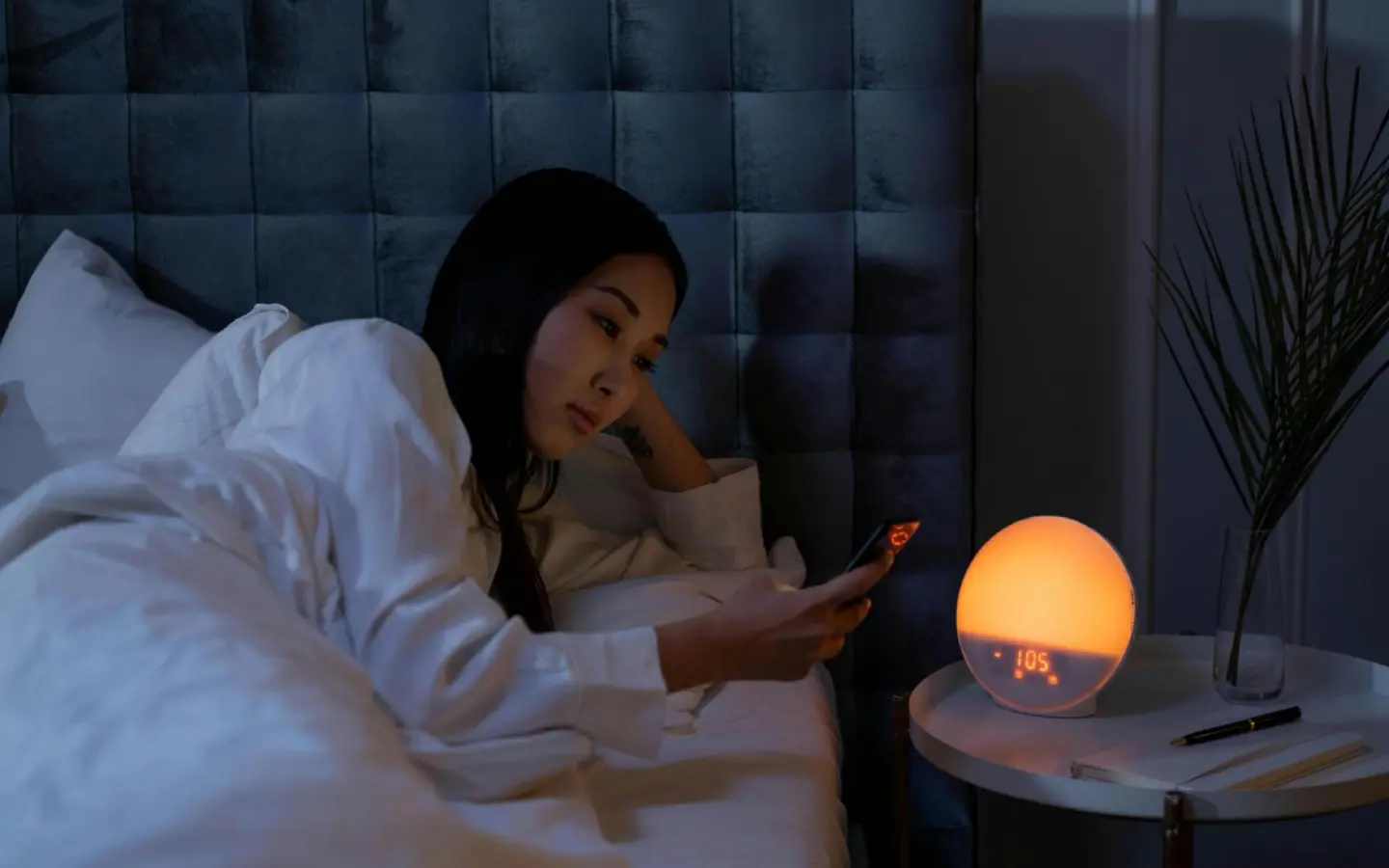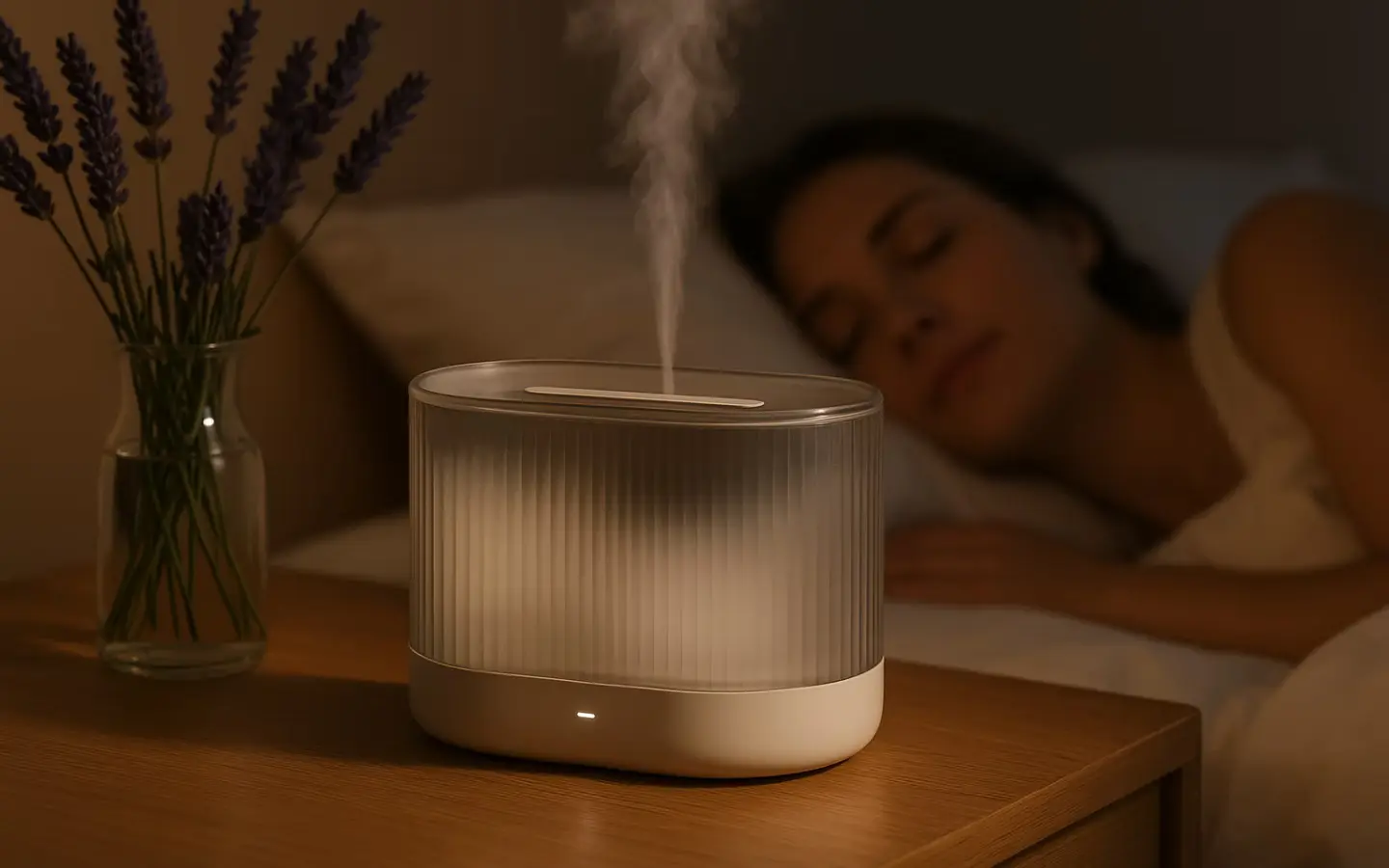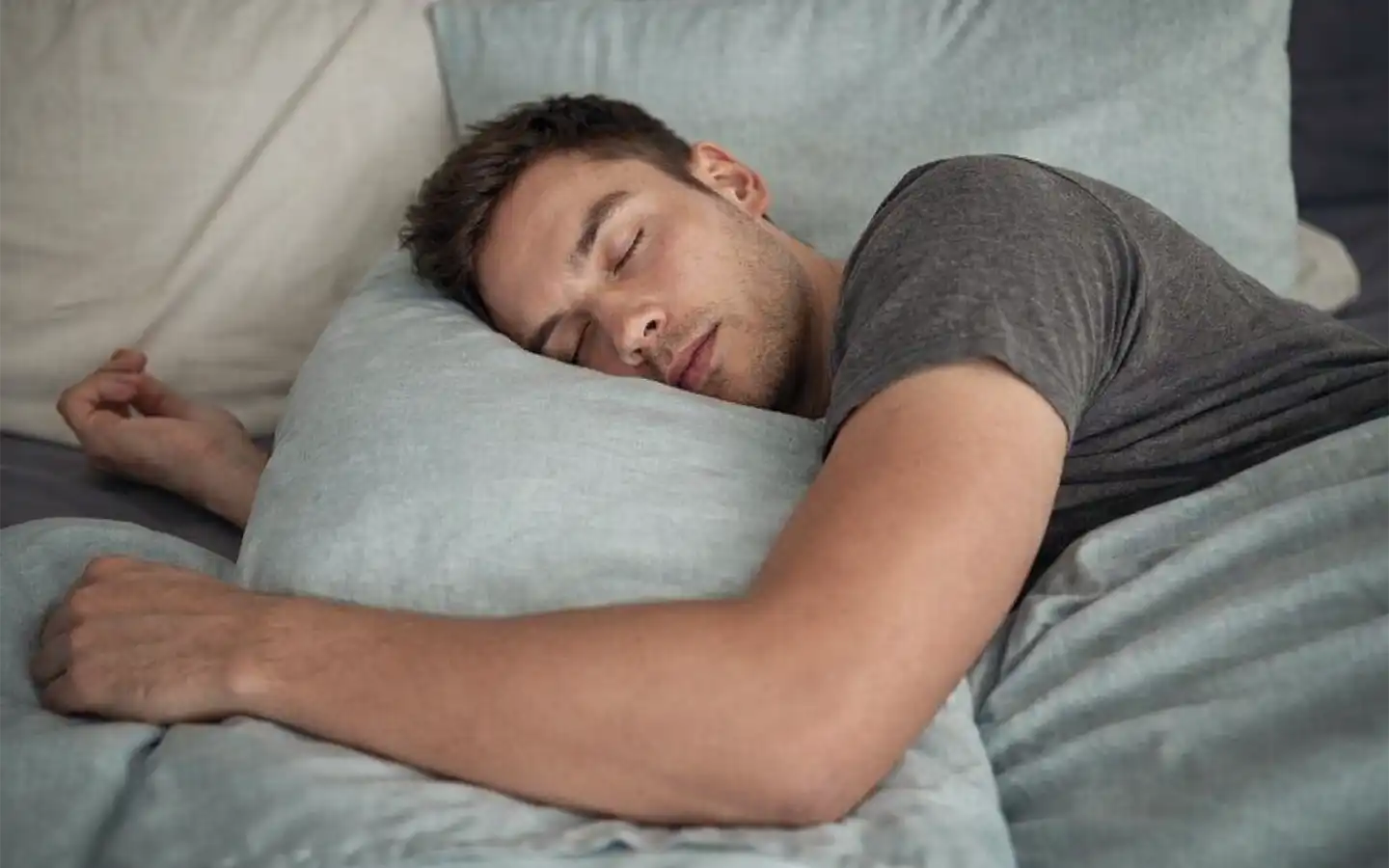August 28, 2025
12 Night Routine Tips for Better Sleep Quality
What is a Night Routine?
A night routine is a set of daily activities that prepare your body and mind for rest. Following one adds structure to your evenings, reduces distractions, and gives you more control over your sleep environment. But it’s not only about what you do right before bed. Good sleep depends on the habits you build throughout the day, from the moment you wake up until the time you go to sleep.
In this article, you’ll learn which habits truly support sleep and why you may want to rethink some of the things you already do that could be holding you back. You don’t need to follow every step at once. Adopt what feels easy to start today, and come back later when you’re ready to add more.
Let’s begin with the first thing that sets the tone for your night: the way you start your morning.
1. Get Sunlight First Thing in the Morning

Morning sunlight is one of the strongest signals for your body clock, also called the circadian rhythm.
When light enters your eyes, special cells called melanopsin signal the brain to stop releasing melatonin, the hormone that makes you feel sleepy. This reset is needed because you want melatonin active at night, not during the day. Even 15 minutes of time outside can help you achieve this, though you may need longer on cloudy days or in winter.
Exposure to natural light also helps to get rid of sleep inertia in the morning, also known as the feeling of grogginess that some people experience after waking.
2. Delay Your First Cup of Coffee
Millions of people rely on coffee to wake up in the morning, yet often feel like that first cup does not do much. There is a reason for this. When you wake up, your body releases hormones such as cortisol and adrenaline that naturally increase alertness. Because these hormones are already active, caffeine provides little benefit beyond the taste.
If you want to really feel that boost, delay your first cup by 40 to 90 minutes after waking. In the meantime, drink water to rehydrate, and then enjoy coffee when it can give you a stronger lift.
3. Stay Hydrated Throughout the Day
We usually think about water as something we drink when we feel thirsty, but our body needs water to regulate circulation, temperature, and hormones, all of which affect how deeply we sleep at night.
Stay well hydrated throughout the day without obsessing over the number of cups you had. Your body will let you know if you had enough, and keep in mind that if you drink too much water before bed, you’ll probably end up waking to use the bathroom and disrupt your sleep cycles.
On the other hand, even mild dehydration can make it harder to stay asleep. Pace your water intake through the morning and afternoon, then ease off in the evening. This way you go to bed hydrated and are less likely to wake up during the night.
4. Include Some Daily Movement to Your Daily Routine

You probably know that exercising, or just staying physically active helps you sleep better. But this doesn’t have to mean hours at the gym. Even 15 to 20 minutes of walking, cycling, or another physical activity is enough to improve sleep depth. What matters is consistency, not intensity.
You should also time your workouts wisely. Exercising too close to bedtime can make it harder to fall asleep because of the increase in core temperature. To help your body wind down easier, finish your workout at least four hours before bed. That way the body gets enough time to cool down and make it easier to fall asleep and stay asleep.
5. Cut Off Caffeine Early
An afternoon coffee might feel harmless, but caffeine lasts in the body far longer than people think. Its half-life is anywhere between 3 to 7 hours in healthy adults, which means half of that coffee you drank late in the day is probably still active at bedtime.
Even if you fall asleep, caffeine can reduce the amount of time you spend in deep sleep and make your rest less restorative. To avoid this, keep caffeine to the morning and stop no later than early afternoon.
6. Avoid Alcohol In the Evening
Alcohol can make you feel sleepy at first, but it does not contribute to good quality rest. If anything, it prevents you from reaching the deeper stages of sleep, keeping you in light sleep and causing sleep fragmentation.
How much alcohol is too much in the evening? For most healthy adults, one or two drinks are usually considered moderate if you also drink water alongside. Of course, it’s best to avoid it completely, but occasional use is less likely to mess up your sleep hygiene.
[CTA_INSERT]
7. Create a Wind-Down Routine That Feels Personal To You
The last hour before sleep sets the tone for the entire night. One way to make it easier is by creating a one-hour wind-down routine. You can divide it into three parts:
- First 20 minutes: finish any small tasks so you don’t think about them in bed.
- Second 20 minutes: evening hygiene, such as brushing your teeth or washing your face.
- Last 20 minutes: calm the mind with reading, journaling, prayer, or meditation.
Some people may use calming music or pink and white noise to block background sounds. Others enjoy aromatherapy for sleep. Whatever you choose, it does not need to be perfect, but it should be something you enjoy doing as you are more likely to stick with it.
8. Keep Your Bedroom Cool and Comfortable
Relaxing activities can definitely help you wind down, but the bedroom environment often decides how well you actually sleep. Temperature is one of the most important factors. Most people sleep best when the room is between 18 and 22°C (65 to 72°F).
If you can’t sleep well during summer months or you sleep hot in general, try lighter bedding or leave your feet uncovered to release heat. You can also cool the room by ventilating it before bed, or keep the window open to allow fresh air in.
9. Stop Using Your Phone in the Bed

Scrolling on your phone in bed keeps your brain active and exposes you to blue light, which blocks melatonin. Tablets, monitors, and TVs do the same.
If you need to use these devices in the evening, blue light glasses can help. But the best option is to keep screens out of the bedroom altogether. If you rely on your phone as an alarm, you can replace it with an analog clock instead.
One option is the Hatch Restore 2, which is also on my list of Top 10 products for sleep.
10. Go to Bed and Wake Up at the Same Time Every Day
One of the most powerful habits for better sleep is keeping both your bedtime and wake-up time regular. When these keep changing, you are more likely to deal with problems like lying awake, waking in the middle of the night, or feeling groggy in the morning.
Your wake-up time is especially important because it sets the rhythm for the rest of the day. Sleeping in late might feel good in the moment, but it usually makes it harder to fall asleep the next night. By keeping both ends of your sleep schedule steady, your body learns when to feel alert and when to wind down, which makes sleep more predictable and restorative.
11. Include Magnesium in Your Night Routine
Magnesium is often linked to better sleep because it supports muscle relaxation and nerve function. When levels are low, sleep can feel lighter and you may wake up more during the night.
In the evening, you can include magnesium naturally through foods like nuts, seeds, and leafy greens. Herbal teas such as chamomile or passionflower also contain small amounts and can be part of a calming ritual before bed.
Some people explore magnesium supplements as well, but not all types work the same. We covered the benefits and drawbacks in detail in our article on sleep supplements if you want to learn more.
12. Support Your Nervous System With Kimba

Sometimes even the best night routine is not enough. Stress, racing thoughts, or small awakenings in the night can keep your nervous system on alert. Instead of moving smoothly through the stages of sleep, your body gets pulled back to a lighter state of rest.
This is where Kimba can help.
Real-Time Scent Therapy
Kimba is not a traditional diffuser. It connects to your wearable and the Kimba app, tracking signals like heart rate, movement, and restlessness. The moment your body shows signs of stress, Kimba reacts in real time with a pulse of calming scent. These micro-bursts are designed to work in the moment, helping the nervous system relax so you can stay asleep.
Clinically Tested Sleep Scents
Kimba’s scents are developed with input from neuroscientists and olfactory researchers. They are designed to work with the limbic system, the part of the brain that processes emotions and safety signals. Because scent bypasses the brain’s filters, the effect is fast and powerful.
Every blend is 100% natural, ethically sourced, and clinically tested to support sleep. Unlike traditional diffusers, Kimba avoids olfactory habituation. Each pulse feels fresh and noticeable, so your brain keeps responding to the calming effect.
Made for the Night Routine
Kimba runs silently, so it never disrupts your rest. Through the Kimba app, you can see when support was triggered and which blends work best for you. It becomes both part of your nightly ritual and real-time protection for your sleep cycles.
What To Remember
A night routine is about giving your body simple, reliable signals that it is time to rest. Good sleep starts long before bed, with habits like getting sunlight in the morning, moving your body, staying hydrated, and then finishing the day with a calm wind-down. Together, these habits create a night routine that makes sleep more natural.
When habits are not enough, Kimba can help. With real-time scent therapy that works alongside your routine, it calms the nervous system and protects your sleep through the night.
Join the Kimba waitlist and be the first to get early access!


Continue reading

Parasomnias and Why Sleep Becomes Unstable at Night

What is REM Sleep And How to Increase It Naturally


